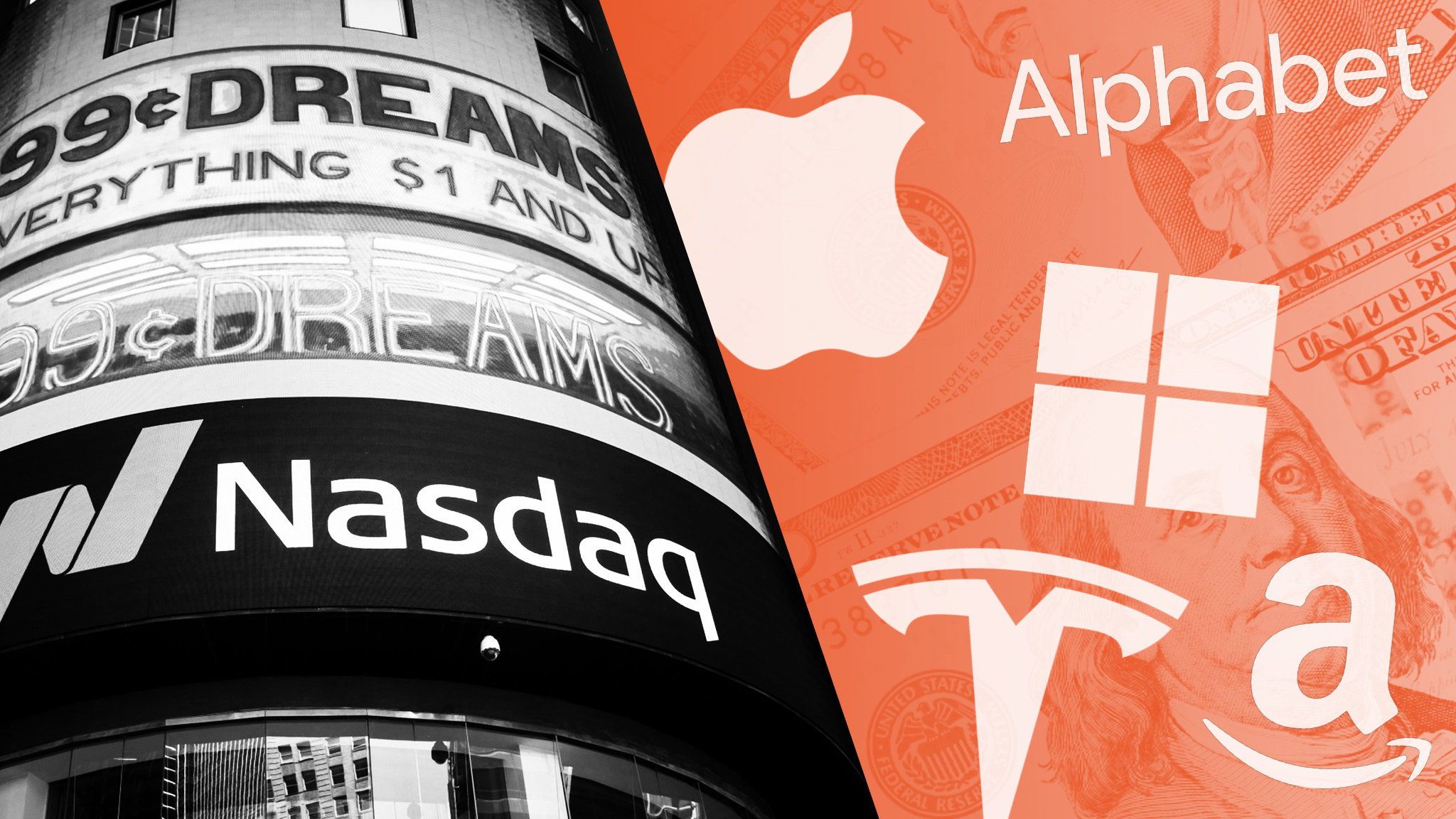Investing in the next generation of technology
How we live and work is driving big developments in tech


The way we live has changed dramatically since the pandemic.
Although over the past decade or two there has been a marked shift in adopting more efficient and sustainable ways of living and working, this has been accelerated in the past two years.
Ongoing innovation in virtualisation, artificial intelligence and the next iteration of the internet are some of the trends creating new opportunities for investors, while many big tech companies already pivoting towards the metaverse for their next major area of development, in the same way that many did at the inception of the internet.
Is it the technology driving the change or is it the other way around?
Perhaps even more important is what these developments mean for investors and how they can sort out the wheat from the chaff.
This report is worth 30 minutes of CPD.
Advisers back specialist funds for next generation tech exposure
Most advisers prefer specialist funds when it comes to trying to gain exposure to the next generation of technology companies, according to the latest FTAdviser poll for Talking Point.
The poll, which was conducted online, found that 70 per cent prefer specialist funds, while 30 per cent choose to go with generalist funds with large tech exposures.
Tim Morris, an independent financial adviser at Russell & Co Financial Advisers, says although he liked some specialist tech funds, it was “very much a case of sorting the wheat from the chaff”.
He adds that access to mega-trends through exchange-traded funds provided some interesting opportunities, while they tended to have an element of active management (also known as smart passives).
Morris says: “Due to the high number of highly speculative companies in this space, a safe pair of hands is welcome. However, themes such as cloud computing and cybersecurity are very much linked to the fortunes of other tech funds.
“And for me, you may as well have a passive play in this sector. Especially when more than 80 per cent of tech returns were from the Faang stocks. Other themes such as the cannabis fund fad in recent years proved worth avoiding. Many of those stocks literally went up in smoke.
“The recently launched metaverse and blockchain EFTs undoubtedly offer massive potential, yet are still in their infancy. And while Zuckerberg is at the forefront of the former theme, to realise the full potential, we need more pioneers such as the next Bezos or Musk to lead the way.”
Morris says that a big theme for him, especially in the current inflationary environment, is renewable infrastructure.
He says: "It’s all very good converting to sustainable living, yet we need to have the tools to harness renewable energy. For example, battery storage for the surplus wind and solar power that many countries around the world are aiming to generate."

The opportunities and risks of investing in future technologies
A feature often underpinning the mega-trends of thematic investing such as climate change, urbanisation and healthcare innovation is technology.
Whether it be electric vehicles, ‘smart’ buildings or surgical robots, to name a few, none of these would be possible without it.
A look back to the dotcom bubble of the late 1990s also emphasises how far technology has come and will continue to progress.
So what emerging trends and technologies are now presenting opportunities for investors, and why?
Ongoing innovation in virtualisation, AI and the next iteration of the internet are some of the trends creating new opportunities for investors, says Dina Ting, head of global index portfolio management at Franklin Templeton.
She says: “We have seen many big tech companies already pivoting towards the metaverse for their next major area of development, in the same way that many did at the inception of the internet.
“Growth and revenue from the metaverse could be derived through companies engaged in virtual content and experiences, to those that are rolling out new platforms on which those experiences can occur.
"There are also firms involved in providing the computing power, new infrastructure, payments or monetisation, and security to support the development of the metaverse.”
Within infrastructure, the emerging tech is likely to be the new generation of wireless technology that is 5G as it starts to be rolled out globally, says Matthew Norris, lead adviser to the VT Gravis Digital Infrastructure Income Fund.
Norris adds: “5G is all about sending greater amounts of data to mobile devices, which requires much denser networks and many more cell sites. So 4G will have to be upgraded to 5G and we will end up having to have solutions such as antennae on street lamps.”
The transition from internal combustion to EV is happening even faster than many thought
Fidelity International portfolio manager Jon Guinness likewise identifies the build-out of infrastructure as one of three immediately investable, attractive themes.
Another is augmented reality, as he cites investment in companies that provide the relevant optical components.
The energy transition is an additional theme, says Guinness: “We recently visited Tesla’s Berlin factory; the transition from internal combustion to EV is happening even faster than many thought, and in China, more than 25 per cent of cars sold are now EVs.
“We invest in the semiconductors but there are many opportunities. We are also invested in companies who use software to improve energy efficiency, and companies who help do the heavy lifting to transform energy networks, etc.”
We have seen many big tech companies already pivoting towards the metaverse for their next major area of development
Mike Seidenberg, Allianz Technology Trust portfolio manager, agrees the EV market has been stronger than he expected this year, presenting with it an opportunity for investors.
“Even while the US is lagging behind, higher fuel pump prices and advertising by competitors of Tesla are getting people to consider an EV for their next car," Seidenberg says.
"We have heard that the Tesla Model Y is currently the most popular car in America from an aspirational perspective, so this indicates that people are considering EVs on a level that was unprecedented just a few years ago.
“While Tesla is dealing with headwinds in the form of slowing production in China due to Covid lockdowns, demand is incredibly high. This is increasingly driven by the long-term trend of environmental awareness, which will only accelerate as consumers experience tangible environmental change in the form of more frequent extreme weather.”
Navigating the hype
When it comes to investing in new technology, a key concern should be extrapolating recent high growth into the distant future, says Mark Murray, senior investment analyst at Morningstar.
“On top of having performed well recently, these stocks with new technologies usually carry exciting and gripping narratives making us forget about boring history and long-term data," Murray adds.
“While it can be tempting to view the current group of companies as unique and history as not relevant, it is worth remembering technological changes are not new and have been a frequent presence for hundreds of years.”
On the other hand, Richard Clode, co-manager of the Global Technology Leaders and Sustainable Future Technologies strategies at Janus Henderson, says investors need to question whether an unprofitable technology company today can become a highly profitable one in the not-too-distant future, and pay a valuation anchored on real profits and cash flow, rather than “esoteric” valuation metrics like price to sales.
Clode says: “New technologies can often take longer than expected to be adopted, and the leaders in the early days often are not the dominant players when the technology becomes mainstream.
"Investors are prone to have unreasonable expectations and pay irrational valuations of these exciting new stocks – a trend we have seen over recent years. We call this ‘navigating the hype cycle’.”
With emerging technologies, it's the unknown and that's sort of the ‘jam tomorrow’ argument
Diversification
Taking a diversified approach to emerging thematic opportunities may be more suitable for investments in emerging themes, which are still at the cusp and will undergo many more evolutions, suggests Ting at Franklin Templeton, or when there is not yet clear agreement on how to define them.
Howie Li, global head of index and ETFs at Legal & General Investment Management, agrees that diversification is key: “For many of these themes, there is no such thing as a clear winner yet. It’s not like a winner takes all.
"There are lots of companies working on what they’re good at; and together, they build an ecosystem. So to say, ‘we’ll buy one stock, and it takes care of this entire theme’, that unfortunately doesn’t actually work. A lot of these themes are not mature enough to get into that phase, and a lot of development is going on essentially until the theme matures.”
Additionally, when it comes to physical infrastructure assets, Norris at Gravis says that obsolescence risk is fairly low, citing his fund that invests in the buildings and structures rather than hardware and software.
“The advantage of investing in infrastructure is tangible, it's proven, you get reliable income; whereas with emerging technologies, it's the unknown and that's sort of the ‘jam tomorrow’ argument. We may have the technologies here but the growth will not come through till later.”
Geopolitical tensions
Investors should also beware rising geopolitical risks, says Clode at Janus Henderson, citing the US government’s recent restriction on the export of certain Nvidia graphics processing units to China.
David Harrison, partner at law firm Fladgate, agrees: “Much of the expansion in the technology market over the past decade has been premised on the idea of the ‘global addressable wallet’ and the ability to generate technological solutions that cross borders and engage with a global audience.
“Investors need to consider whether this assumption remains a secure one in the current environment as we enter a period where the globalist agenda potentially takes more of a backseat to the immediate political and security concerns of individual countries.”
Could household tech names be displaced?
With large cap tech stocks frequently among the holdings of US equity funds, what impact could new and emerging technology companies have on such incumbent names?
From Alphabet to Amazon and Netflix, Clare Pleydell-Bouverie, co-manager on the Liontrust Global Innovation team, says investing in these companies at current prices still offers significant long-term value for investors.
“Unless you see a reversal of the shift to the cloud, e-commerce, and away from online entertainment," Pleydell-Bouverie adds.
“But these companies are also building the infrastructure to enable the next wave of progress. Much of it will be delivered by emerging companies that are on sale today.”
We will start to see pressure on some software as a service companies, and innovation could slow down
While the adoption of new technology creates risk for incumbent tech mega-caps, Clode says such organisations are so profitable that they can spend significant amounts on research and development.
Clode says: “Facebook changed its name to ‘Meta’ to telegraph its major aspirations in the metaverse; and Apple is expected to launch its inaugural mixed reality headset in early 2023. Hence in many ways the mega-caps provide investors with access to more nascent emerging technologies, but there is always the risk they do not end up as dominant in these new areas than their incumbent businesses.”
Companies developing technology can also become targets for a merger or acquisition, says Li at LGIM. “Let’s say you develop a strategy, product and service that’s focused on a very particular slice of cybersecurity, because there are lots of different types of cybersecurity risks.
“You then have, say, traditional software companies that do anti-virus saying, ‘That technology that’s been built, that’s fantastic, we can integrate that into our system, why don't we acquire that?’ And so it’s recognising the potential for these smaller emerging companies to actually be acquired by the larger, traditional sectors or larger tech companies.”
Cost of living impact on tech stocks
As pressures mount on the current cost of living and uncertainty around the economy's near-term future persists, Raoul Martin, Kempen portfolio manager, predicts that investors are likely to focus more on the return of capital, as opposed to return on capital.
He says: “Visibility of near-term earnings, rather than the possibility of higher returns in the longer-term, may become more attractive, which in turn may cause investors to see some future technologies as higher risk.”
Indeed, the cost of living crisis has already had an impact on technology, as Guinness at Fidelity International highlights: “Companies like Netflix and Spotify have and will find net additions tough as people weigh up these multiple subscriptions and cancel some.
“Companies are less willing to try out the latest software or cloud technologies if it will cost time, effort and more money; so we will start to see pressure on some SaaS [software as a service] companies, and innovation could slow down.”
You might not automate a factory when labour is bountiful and cheap, but you will when you can't get the workers you need
Clode at Janus Henderson agrees an impending recession and inflationary pressures are top of mind for investors. But both are also significant catalysts for adopting new technology.
Clode adds: “You might not automate a factory when labour is bountiful and cheap, but you will when you can't get the workers you need and wages go up substantially. You might not shift to EVs or install solar panels while petrol and electricity is cheap, but you will when prices surge.”
Liontrust’s Pleydell-Bouverie likewise says the cost of living crisis means that, long-term, investors cannot ignore investing in innovation.
She adds: “The hallmark of innovation is that it drives down prices for customers.
“This is more essential than ever, given potentially ongoing cost of living pressures [that] will create huge demand for the offerings of the best innovative companies over the coming years.”
Chloe Cheung is a senior features writer at FTAdviser

(Kindel Media/Pexels)
(Kindel Media/Pexels)

(Roberto Nickson/Pexels)
(Roberto Nickson/Pexels)

(FT Fotoware)
(FT Fotoware)

(Harsch Shivam/Pexels)
(Harsch Shivam/Pexels)

